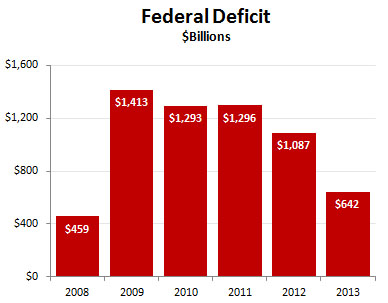Paul Krugman channels Simon Wren-Lewis today to complain about the economic triumphalism of British Prime Minister David Cameron, who has been crowing that his austerity policies are finally paying off. In reality, both men say, Cameron implemented austerity policies in 2010 and 2011, but then eased up. And now that he’s eased up, the economy is starting to improve. Austerity had nothing to do with it.
I want to use this as a springboard to make two random-but-connected points:
- Politically, message consistency is key. Ronald Reagan never varied from his insistence that tax cuts would supercharge the economy, so when the economy finally did pick up in 1983, tax cuts got the credit even though they almost certainly played only a small role. Likewise, austerity is getting the credit in Britain because Cameron has never varied from his insistence that it would work. Liberals tend to be much worse at
 this kind of economic message discipline. When the economy improves, they get a lot less credit because they haven’t relentlessly prepared the public with a very simple message about what they’ve been doing.
this kind of economic message discipline. When the economy improves, they get a lot less credit because they haven’t relentlessly prepared the public with a very simple message about what they’ve been doing. - On a related note, Wren-Lewis points out that Britain’s central government deficit in 2013 was 7.5 percent of GDP. Cameron touts this as evidence of his fiscal stinginess. In America, the federal deficit in 2013 was 4.1 percent of GDP. Conventional wisdom ignores this and continues to wail that we need ever more spending cuts in order to reduce our still-unconscionable deficits. One again, note the difference that message discipline makes.
My point is not that message discipline is everything. The real world matters more. But it does matter. If you want credit for good things, you have to make up a simple, plausible story about what you’re doing and then stick to it like glue until things finally turn up. It worked for Reagan and it’s working for Cameron. Obama, on the other hand, never had a consistent story, so he’s not getting any credit as the economy improves.
POSTSCRIPT: Needless to say, Obama also had much less control over the economy than Cameron, who doesn’t have to put up with a fractious Congress. So from a message point of view, maybe he was just screwed. Still, I suspect Obama could have done better than he did.













